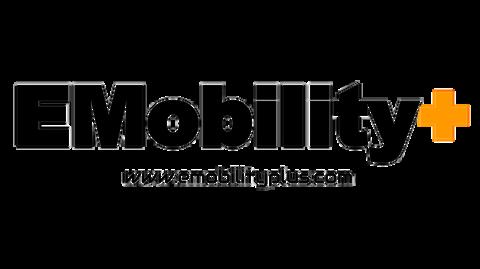


















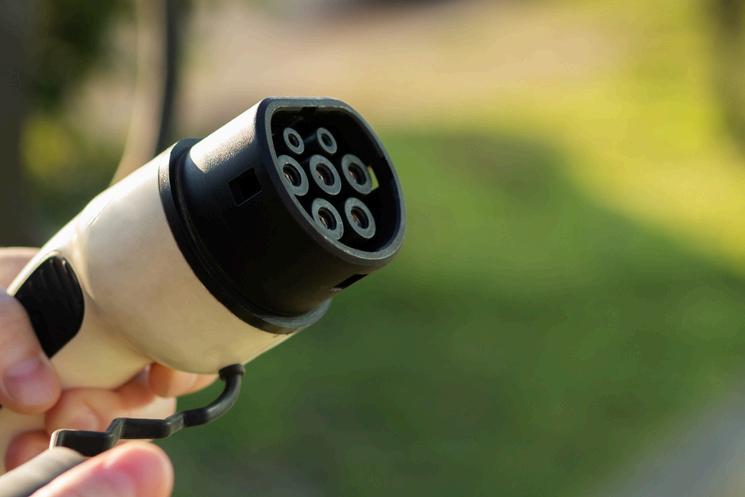







THE ROAD TO ZERO EMISSIONS BEGINS WITH A POWERFUL INNOVATION.
DISCOVER THE FUTURE OF ENERGY AT THE EV BATTERY SHOW, WHERE CUTTING-EDGE BATTERY TECHNOLOGY LEADS THE WAY.
Hyundai India Secures SEBI Approval For $3 Billion IPO, Eyes Market Expansion
Hyundai Motor India is gearing up for an initial public offering (IPO) to raise USD 3 billion at a valuation of approximately USD 20 billion The company has received approval from the Securities and Exchange Board of India (SEBI) for the IPO, which would be the first by a carmaker in India in two decades Hyundai India aims to use the funds raised through the IPO to strengthen its market position and compete more effectively against domestic rivals like Tata Motors The company is also focusing on expanding its product lineup, with plans to launch its first Indiamade electric vehicle next year and introduce at least two new gasoline-powered models tailored for the Indian market



Usha Financial Services Empowers Over 3,300 Electric Vehicle Owners with Green Financing Loans
Usha Financial Services Limited, a prominent Non-Banking Financial Company (NBFC), has marked a significant milestone by financing over 3,300 electric vehicle (EV) owners through its Green Financing Loans This achievement underscores the company’s commitment to supporting India’s rapidly expanding EV market. The NBFC operates across 84 districts in key states, including Assam, Bihar, Delhi, Jharkhand, Madhya Pradesh, Odisha, Punjab, Rajasthan, Uttar Pradesh, and Uttarakhand, having disbursed ₹50 crores in Green Financing to date Usha Financial Services’ extensive network facilitates financial inclusion and environmental sustainability by bridging financial gaps
BAXY Mobility Secures Financing Partnership with Perpetuity Capital for Electric Three-Wheelers
BAXY Mobility has announced a strategic partnership with Perpetuity Capital to secure financing for its electric threewheeler vehicles The agreement, led by Rajneesh Bankura, General Manager of Retail and Channel Finance at BAXY Mobility, will see Perpetuity Capital offering tailored financing solutions for BAXY’s fleet The companies have formalized their collaboration through a Memorandum of Understanding (MoU), with an initial target to finance 300 vehicles over the next year This partnership focuses on strengthening BAXY’s sales and distribution network, particularly in rural regions Perpetuity Capital, recognized for its support of clean-tech mobility solutions, brings its expertise in financing to help first-time borrowers access formal credit




Clean Electric Closes $6M Series A Round To Boost EV Energy Storage Solutions
Clean Electric has successfully closed its Series A funding round, securing ₹48 5 crore ($6 million) The round was co-led by Pi Ventures, Info Edge Ventures, and Kalaari Capital, with additional support from Lok Capital and other strategic investors The funding will drive Clean Electric’s mission to tackle key challenges in the electric vehicle (EV) industry, including extending battery range, reducing charging times, and enhancing safety standards.
OLX Joins Forces With IDFC FIRST Bank To Boost Pre-Owned Vehicle Financing In India
OLX, a popular online marketplace, has joined forces with IDFC FIRST Bank to provide financing options for used vehicles This collaboration aims to simplify the vehicle buying process by providing easy access to financing directly on the OLX platform
JBM ECOLIFE Receives $100M Boost From ADB And AIIB For EV Bus Operations In India
BM ECOLIFE Mobility (P) Ltd, a subsidiary of JBM Auto Limited and a leader in electric bus mobility in India, has secured $100 million in strategic funding from the Asian Development Bank (ADB) and the Asian Infrastructure Investment Bank (AIIB) The funds will be used to supply and operate 650 electric buses across multiple states in India under the Gross Cost Contract (GCC) model This marks a significant step in the company’s mission to promote green public mobility in India The funding was secured following comprehensive Environmental, Social, and Governance (ESG) audits, demonstrating JBM’s commitment to sustainable mobility and the circular economy.
Indian EV Start-Up Simple Energy Gains $20 Million To Scale Up Production And Innovation
NBFC PHF Leasing has expanded into various cities across Madhya Pradesh, offering loans for electric vehicles The company seeks to support the state’s growing EV market by providing financing for e-rickshaws, e-loaders, and electric twowheelers, aligning with state-led initiatives The expansion includes operations in cities and towns such as Bhopal, Chhatarpur, Gwalior, Indore, Jabalpur, and more. PHF Leasing aims to extend its financial services to a broader audience throughout the state
WITH EVERY ELECTRIC VEHICLE ON INDIAN ROADS, WE DRIVE CLOSER TO A CLEANER ENVIRONMENT AND A BRIGHTER TOMORROW.
The Climate Pledge Unveils $2.65 Million EV Charging Network In Bengaluru To Accelerate Electric Vehicle Adoption
In a significant move to accelerate electric vehicle (EV) adoption in India, The Climate Pledge co-founded by Amazon and Global Optimism has announced a new initiative called Joint Operation Unifying Last-mile Electrification (JOULE) This $2 65 million project aims to build a network of shared EV charging stations across Bengaluru, India’s tech capital, powered entirely by renewable energy The first charging station at Doddakallasandra is now operational. JOULE’s objective is to support over 5,500 electric vehicles by 2030 and fill the infrastructure gaps that have hindered corporate fleet transitions to EVs The project will be supported by key industry partners, including Kazam, which will develop a network of charging stations and renewable energy provider Greenko
EaseMyTrip Enters EV Market With ₹200 Crore Investment In Electric Buses
Travel booking platform EaseMyTrip announced that it is entering the electric bus manufacturing sector through its new subsidiary, Easy Green Mobility The company plans to invest ₹200 crore over the next 2-3 years to develop electric buses and establish a manufacturing facility The operations of these electric buses will be managed by YoloBus, a subsidiary of EaseMyTrip With the Indian electric bus market projected to grow at a 24% CAGR from 2024 to 2030, EaseMyTrip aims to capitalize on this increasing demand and secure a significant market share

Ather Energy Seeks ₹3,100 Crore Via IPO, Plans Major Investment In Maharashtra Plant
Ather Energy, a domestic electric twowheeler manufacturer, has submitted its draft red herring prospectus (DRHP) to the Securities and Exchange Board of India (Sebi) for an upcoming initial public offering (IPO) The IPO will include a fresh share issuance valued at ₹3,100 crore, according to the official document Additionally, the offering includes an offer for the sale of up to 22 million shares by the company’s investors and promoters.
Rapido Secures Major $200M Investment, Expands Mobility Offerings
Rapido, India’s largest ride-sharing platform, has secured $200 million in Series E funding, led by WestBridge Capital, with participation from existing investor Nexus and new investors Think Investments and Invus Opportunities This funding round brings Rapido’s postmoney valuation to USD 1 1 billion


The government has launched the PM Electric Drive initiative to accelerate the adoption of electric vehicles (EVs) across India The scheme targets two-wheelers, three-wheelers, buses, and emerging EV categories by offering subsidies to lower costs and improve affordability. With a budget of ₹10,900 crore over two years, the plan also invests in EV charging infrastructure, setting up stations across cities and highways The initiative focuses on promoting public transport, upgrading testing facilities, and collaborating with state governments to provide additional incentives, fostering a cleaner, energy-efficient transport system
Delhi Government To Electrify
Gramin Seva Autos For Sustainable Rural Transport
The Delhi government plans to revamp the Gramin Seva auto scheme by transitioning its fleet to electric vehicles Launched in 2010, Gramin Seva provides crucial last-mile connectivity in rural areas and resettlement colonies Currently, only 2,000 to 3,000 of the 6,000 registered autos are operational. Responding to drivers' union requests, officials are actively considering the shift to electric power to modernize the fleet and promote sustainability The Capital Driver Welfare Association supports this move, aiming to address the reduction in permits and improve transport efficiency in Delhi
The Ministry of Power's revised “Guidelines for Installation and Operation of EV Charging Infrastructure-2024” aims to boost EV adoption in India Key points include setting up public, captive, and community charging stations with financial incentives like land subsidies and streamlined electricity connections Urban areas will have one charging station per square kilometer by 2030, with highway stations every 20-100 km. Fees will include electricity, service, and land costs, with lower tariffs during solar hours The Bureau of Energy Efficiency (BEE) will monitor progress to ensure successful implementation

Ministry Of Power Releases New Guidelines To Boost EV Charging Infrastructure And Renewable Energy Integration In India
The Ministry of Power has released updated guidelines to establish a reliable and sustainable Electric Vehicle Charging Infrastructure in India, promoting EV adoption and renewable energy use. These guidelines encompass public, semi-public, and private charging stations, incentivizing their development in key locations They emphasize a robust electricity grid, smart charging systems, and compliance with safety standards The Ministry of Housing and Urban Affairs supports this by updating building regulations for new developments Key features include transparent charging rates, online application processes for operators, and the integration of solar power at stations, facilitating a cleaner energy cycle
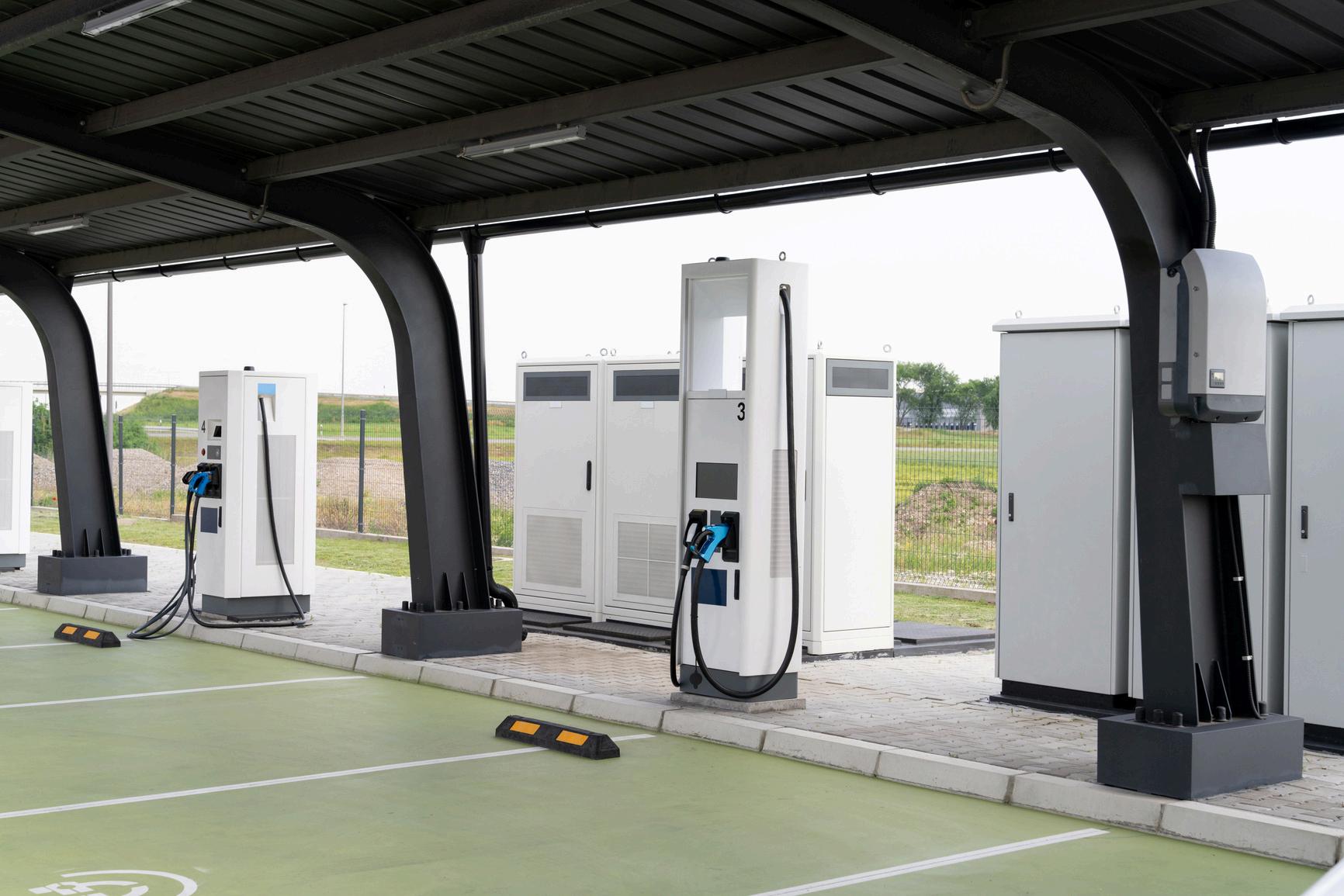
The Ministry of Heavy Industries has revised the Production Linked Incentive (PLI) Scheme for the automobile and auto components industry, originally announced in September 2021 Key changes include a mandatory minimum of 50% domestic value addition for eligibility, certified by the Ministry's testing agency The disbursement mechanism now requires pre-approval of advanced automotive technology vehicles and components. This amendment, effective September 6, 2024, aims to streamline the process, encourage local manufacturing, and promote advanced technology development within the automotive sector
CESL Issues Tender For EV Charging And Battery Swapping Stations Under BOOM Model
Convergence Energy Services Limited (CESL) has issued a tender inviting Charge Point Operators (CPOs) for the procurement, installation, testing, and maintenance of Electric Vehicle (EV) charging and battery swapping stations under a Build, Own, Operate, and Maintain (BOOM) model
Published on September 17, 2024, the tender allows interested parties to purchase documents starting September 18, with bids due by October 8. The application fee is ₹20,000, and the EMD value is ₹720,000, split into two packages, supporting India's EV infrastructure development
UPSRTC Seeks Bids For 30 Electric Buses To Strengthen Eco-Friendly Transit
The Uttar Pradesh State Road Transport Corporation (UPSRTC) has issued an open tender for 30 ready-built electric airconditioned buses, aiming to enhance sustainable public transportation The estimated tender value is ₹36 crore, with documents available for download from August 15, 2024 Bids are due by September 20, 2024, at 3:00 PM, with openings at 4:00 PM in Lucknow Bidders must pay a nonexempt tender fee of ₹29,500 and an Earnest Money Deposit (EMD) of ₹36,00,500. A prebid meeting will be held on August 27, 2024, for clarifications The project completion is expected within 365 days
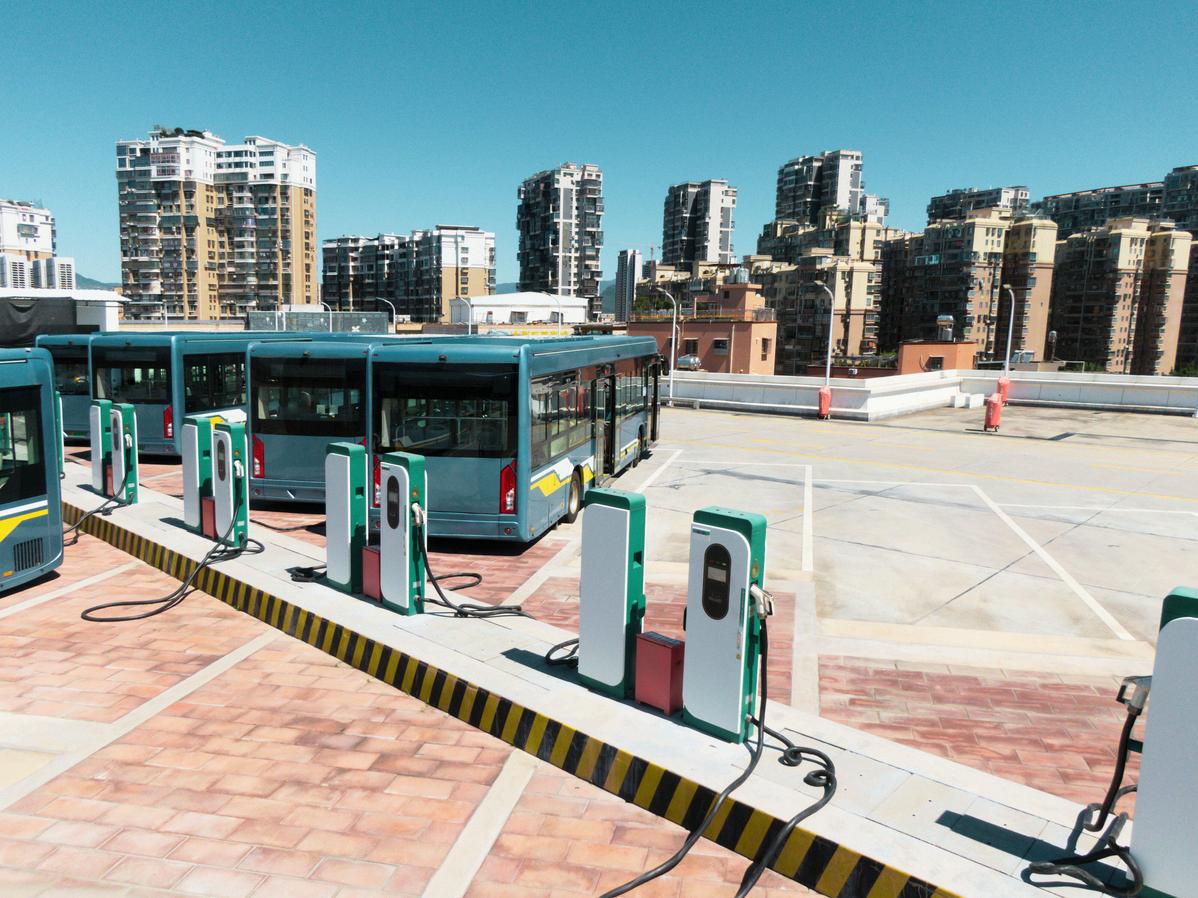
Greaves Electric Mobility Partners with Shriram Finance to Accelerate Adoption of Electric 3-Wheelers
Greaves Electric Mobility Private Limited (GEMPL), the electric mobility division of Greaves Cotton Limited, has announced a strategic partnership with Shriram Finance, a flagship company of the Shriram Group, aimed at boosting the accessibility of electric threewheelers (3Ws) in India This collaboration will offer customers tailored financing options, including flexible down payments and EMI plans, to make Greaves’ 3W range more affordable
Hyundai and Waymo Forge Strategic Partnership to Integrate Autonomous Technology into IONIQ 5 EVs
Hyundai Motor Company and Waymo have announced a multi-year strategic partnership aimed at advancing autonomous driving technology. The collaboration will see Waymo’s sixth-generation fully autonomous system, known as the Waymo Driver, integrated into Hyundai’s all-electric IONIQ 5 SUV, marking a significant expansion of the Waymo One autonomous ride-hailing fleet
JSW MG Motor India Partners with Vision Mechatronics to Provide Second-Life EV Battery Solutions
JSW MG Motor India has announced the launch of India’s first high-voltage (HV) second-life battery featuring a homegrown Battery Management System (BMS) as part of ‘Project Revive ’ The innovative product, developed in collaboration with Vision Mechatronics, was showcased at The Battery Show held from October 3-5, 2024, at the India Expo Mart, Greater Noida

Warivo Motor Partners with Battery Smart to Enhance Electric Scooter Fleet with Battery Swapping Technology
Warivo Motor India Pvt. Ltd., a prominent electric two-wheeler manufacturer, has entered into a memorandum of understanding (MoU) with Battery Smart, India’s largest battery-swapping network for electric two and three-wheelers This partnership aims to integrate advanced battery-swapping technology into Warivo’s fleet, specifically targeting the business-tobusiness (B2B) market
Hyundai and Kia Partner with Hyundai Steel, EcoPro BM to Develop Advanced LFP Battery Technology for EVs
Hyundai Motor Company and Kia Corporation are intensifying their efforts to strengthen future electric vehicle (EV) battery competitiveness Both companies launched a project to develop lithium iron phosphate (LFP) battery cathode materials. Partnering with Hyundai Steel and EcoPro BM, a leader in the cathode material industry, this initiative aims to directly synthesize LFP battery cathode materials without creating a precursor Supported by the Korean Ministry of Trade, Industry, and Energy, the four-year project is part of the ‘LFP Battery Technology Development’ initiative
Vidyut Partners with JSW MG Motor India to Launch Battery-as-a-Service Financing, Revolutionizing Electric Vehicle Ownership
Vidyut, a Bengaluru-based full-stack EV ecosystem startup, has partnered with JSW MG Motor India to introduce an innovative Batteryas-a-Service (BaaS) financing model for passenger electric vehicles The initiative, launched for models including the MG Comet EV, MG Windsor EV, and MG ZS EV, aims to reduce the overall cost of EV ownership
myTVS Launches Comprehensive MaaS Platform For EV Fleet Operators, Partners With MoEVing To Accelerate EV Adoption In India
myTVS, a leading automotive aftermarket platform in India, has launched a new Mobilityas-a-Service (MaaS) platform specifically designed for electric vehicle (EV) fleet operators This platform offers a wide range of services, including leasing, real-time fleet management, charging solutions, spare parts, roadside assistance, and telematics The MaaS platform aims to be a one-stop solution for lastmile delivery companies looking to transition their fleets to electric vehicles By partnering with various stakeholders in the EV ecosystem, myTVS can provide customized solutions to meet the unique needs of these businesses
Tata Motors Partners with ESAF Small Finance Bank to Provide Tailored Financing for Commercial Vehicles


Tata Motors has announced the signing of a Memorandum of Understanding (MoU) with ESAF Small Finance Bank, aimed at offering customized financing solutions for its commercial vehicle customers Initially focusing on Small Commercial Vehicles (SCVs) and Light Commercial Vehicles (LCVs), the partnership will soon extend to cover Tata Motors’ entire commercial vehicle portfolio
Bharat Petroleum and IONAGE Extend Partnership to Enhance EV Charging Accessibility in India
Bharat Petroleum Corporation Limited (BPCL) has announced an extended partnership with IONAGE, a leading eMobility service provider based in Bangalore, reinforcing their commitment to a sustainable future This collaboration will ensure that all current and future BPCL electric vehicle (EV) chargers nationwide remain accessible through the IONAGE platform, significantly enhancing convenience for EV owners.
EKA Mobility Partners with Skyline Motors to Launch Electric Bus Service in Uttarakhand
EKA Mobility, a subsidiary of Pinnacle Industries and a prominent player in the electric vehicle sector has announced the deployment of its EKA 9 electric buses in collaboration with Skyline Motors (India) Private Limited. These e-buses will operate along the Dehradun-Rishikesh route, passing through Haridwar, covering a total distance of 300 kilometers daily
Cygni Energy and HiNa Partner to Drive Sodium-Ion Battery Innovation for Electric Vehicles in India
Cygni Energy Private Limited, a key player in energy storage solutions, has announced a strategic partnership with HiNa Battery Technologies, a global leader in Sodium-ion technology This collaboration aims to create India-specific storage solutions using HiNa’s cutting-edge Sodium-ion cells, with a focus on sustainable and cost-effective energy alternatives to Lithium-based batteries
Charge Partners with Airports Authority of India to Launch EV Charging
Terra Charge has announced a strategic partnership with the Airports Authority of India (AAI) to set up electric vehicle (EV) charging hubs at major airports across the country, starting with Raja Bhoj International Airport in Bhopal. This initiative marks Terra Charge’s first collaboration with AAI and represents a significant investment in expanding India’s public EV charging infrastructure

Neuron Energy Partners with Pointo to Drive Lithium-Ion Battery Leasing for E-Rickshaws in India
Neuron Energy, a leading EV battery manufacturer, has announced a strategic partnership with Pointo, a pioneer in the Battery-as-a-Service (BaaS) model This collaboration aims to lease high-capacity lithium-ion batteries to commercial e-rickshaws in India, marking a major step toward advancing sustainable electric mobility in the country

DAEWOO India Partners with eBikeGo to Revolutionize Personal Electric Mobility
DAEWOO India and eBikeGo, a leading electric mobility platform, have announced a strategic collaboration aimed at transforming the personal electric mobility market over the next five years. This partnership combines DAEWOO’s global reputation with eBikeGo’s innovative electric vehicle technology

CESL And KADA To Launch Electric Bicycle Initiative In Andhra Pradesh To Support Rural Entrepreneurs
Convergence Energy Services Limited (CESL) has partnered with the Kuppam Area Development Authority (KADA) to introduce 300 cargo electric bicycles in Kuppam, Andhra Pradesh, as part of the Sustainable Transport for Rural Entrepreneurs (STREE) program This initiative promotes eco-friendly transportation and supports local entrepreneurship, empowering women and enhancing mobility.
Global Automotive Collision Repair Market to Reach $272.8 Billion by 2034, Driven by Advanced Technology and Sustainability Trends
The global automotive collision repair service market is projected to grow from $195 27 billion in 2024 to $272 8 billion by 2034, at a CAGR of 3 4% Growth is driven by advanced technologies like AI and AR, improving diagnostics and repair efficiency Sustainability trends are prompting repair shops to adopt eco-friendly materials and processes. The U.S. market is expected to reach $44 94 billion in 2024, while part and component repair services could generate $165 32 billion by 2034, with key players like Denso and 3M leading innovation
Jio-bp Expands EV Charging Network With 500th Station Inauguration
Jio-bp, a joint venture between Reliance Industries and bp, has inaugurated its 500th EV charging station in Mumbai, highlighting its rapid growth in electric vehicle infrastructure Operating a network of 5,000 charging points across India, Jio-bp is the largest provider of fast-charging stations in the country, boasting a 96% uptime rate for reliability By leveraging the expertise of both companies and using energy from Reliance Jio’s solar plants, Jio-bp aims to promote sustainable mobility and accelerate electric vehicle adoption in India
Magenta Mobility Achieves Milestone with Deployment of Over 2,000 Electric Vehicles Across India
Magenta Mobility, a prominent player in integrated electric mobility solutions, has reached a significant milestone by successfully deploying over 2,000 electric vehicles (EVs) in more than 18 cities across India This accomplishment highlights the company’s dedication to promoting green logistics and enhancing sustainable urban transportation. In a relatively short time, Magenta has built a fleet comprising over 2,000 three-wheelers (3W) and more than 250 four-wheelers (4W)
BESCOM Launches Upgraded EV Mitra App With Multilingual Support And WhatsApp Payment Integration
BESCOM has launched an updated version of its EV Mitra app, designed to offer a more intuitive and user-friendly experience for electric vehicle (EV) users The app, available for both Android and iOS, now supports 11 languages, including Kannada, Hindi, and English, making it easier for users across Karnataka to access The enhanced app provides comprehensive details on EV charging stations, such as their locations, availability, and amenities.



Raft Cosmic EV Announces New ₹50 Crore Electric Scooter Manufacturing Facility In Howrah
Raft Cosmic EV, a subsidiary of a Kolkatabased company, is set to invest ₹50 crore in building a new electric scooter manufacturing facility in Domjur, located in West Bengal’s Howrah district The facility will be capable of producing 12,000 twowheelers annually The Cosmic Birla Group, which previously specialized in producing components for electric two-wheelers, expanded into the full electric scooter market in 2023 after acquiring Raft Motors in Maharashtra for INR 40 crore
Reliance Industries Bags 10 GWh In Government’s ACC Battery Storage PLI Scheme
The Ministry of Heavy Industries (MHI), Government of India, has announced the successful bidder under the Production Linked Incentive (PLI) Scheme for Advanced Chemistry Cell (ACC) Battery Storage Reliance Industries Limited has been awarded 10 GWh ACC capacity under the scheme, based on the Quality & Cost Based Selection (QCBS) mechanism This move represents a significant step in boosting domestic manufacturing capabilities, reducing dependence on imports, and positioning India as a leader in ACC battery production.
Reliance Industries Wins Bid for Government Incentives to Boost EV Battery Production in India
Reliance Industries has secured a bid under the Indian government’s incentives program to support the production of electric vehicle (EV) batteries, as announced on September 4, 2024 The company is one of seven that submitted proposals earlier this year to establish local manufacturing units for advanced chemistry cells (ACCs), a critical component in EVs Under the government’s production-linked incentive (PLI) scheme, Reliance Industries is now authorized to produce up to 10 GWs of ACCs
Ministry Of Power’s New Guidelines For Battery Swapping
The Ministry of Power has released new guidelines for EV charging infrastructure, focusing on battery swapping and charging stations These guidelines promote battery swapping as a viable solution, emphasizing the "Battery as a Service" (BaaS) model, where providers lease swappable batteries to EV owners Key elements include the "Battery to Grid" (B2G) concept for energy storage and grid supply, safety standards, and support for liquid-cooled batteries. These efforts aim to enhance EV adoption and contribute to a sustainable electric mobility ecosystem in India.
Maruti Suzuki Partners With UP Transport Department To Enhance Driving License Testing Through Automation
Maruti Suzuki India Limited (MSIL) has announced an ambitious agreement with the Transport Department of Uttar Pradesh to automate an additional 12 driving license test tracks across the state This partnership aims to improve the efficiency and transparency of the driving license evaluation process, furthering road safety initiatives The Memorandum of Agreement, signed in December 2023, follows the successful automation of five driving test tracks earlier this year in Ayodhya, Gorakhpur, Mathura, Prayagraj, and Varanasi.
Ebikego’s Subsidiary Acquires 40% Stake In Varcas Automobiles To Boost EV Market Presence
In a strategic move, eBikeGo’s subsidiary Vajram Electric Ltd has acquired a 40% stake in Varcas Automobiles Pvt Ltd, a leading Hyderabad-based EV manufacturer This partnership aims to enhance Vajram’s production capabilities to meet rising EV demand, especially in Tier-2 and Tier-3 cities With Varcas’ robust track record of delivering 25,000 electric two-wheelers and ₹110 crore in revenue, the collaboration will drive innovation, scale production, and contribute to India’s green mobility revolution, according to Vajram's Chairman Dr Irfan Khan


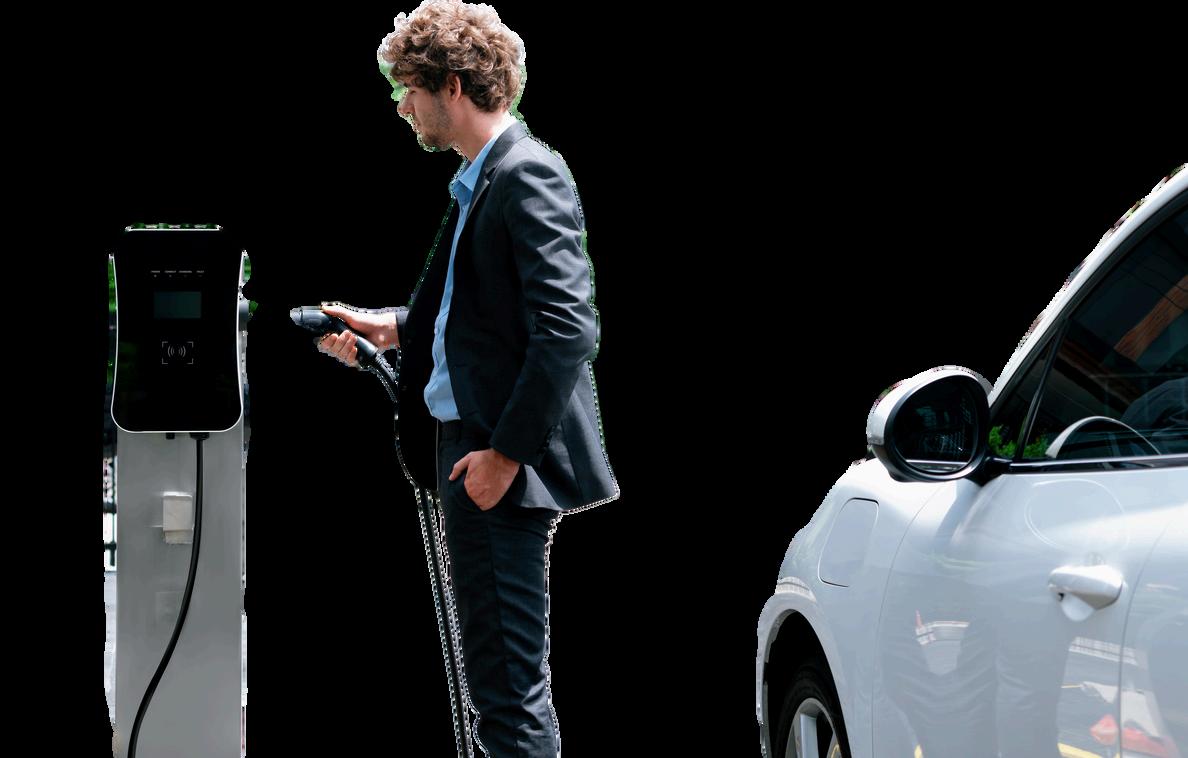

India is witnessing a significant shift toward electric mobility, with electric vehicles (EVs) playing a crucial role in reducing pollution and dependence on fossil fuels However, one of the main challenges holding back the wider adoption of EVs is the development of a robust and accessible charging infrastructure The success of EVs in India hinges on building a charging network that is efficient, widespread, and reliable
The government's push toward green energy is clear, with initiatives such as the Faster Adoption and Manufacturing of Hybrid and Electric Vehicles (FAME) scheme Under this, various incentives and policies have been introduced to encourage EV adoption However, setting up a charging network that matches the growing demand for EVs remains a critical task.
India's unique geography and urban-rural divide make this task challenging While metropolitan cities like Delhi, Mumbai, and Bengaluru are seeing more EV chargers being installed, rural areas still face a lack of infrastructure. Building a network that covers both urban and rural regions is essential to ensure seamless EV adoption across the country
The government’s target of having 30% of vehicles on Indian roads to be electric by 2030 is ambitious but achievable with the right roadmap. One of the keys to this lies in encouraging partnerships between the public and private sectors Energy companies, automakers, and tech firms are already collaborating to introduce smart and fast-charging solutions With more private players investing in the charging infrastructure, India can move toward a more sustainable future at a faster pace
There are also technological advancements that need to be addressed to improve the efficiency of charging stations Fast-charging technologies are essential to reduce the time it takes to charge an EV, as long waiting times can deter potential buyers Additionally, integrating


renewable energy sources like solar power into charging stations can lower the burden on the grid and make the infrastructure more ecofriendly
Creating a reliable and well-distributed charging network also means developing battery-swapping stations, especially in cities where space is limited Battery swapping is a quick solution for electric twowheelers and three-wheelers, making them ideal for urban areas where parking and charging space may be constrained.
The role of real-time data and digital platforms cannot be overlooked These platforms will allow EV drivers to locate the nearest charging stations, check availability, and even pre-book a slot Ensuring smooth user experiences through mobile apps and connected technologies will encourage more people to switch to electric vehicles

Affordability is another challenge, especially in a country like India While the cost of EVs is coming down, the cost of installing and maintaining a charging network is still high. Offering subsidies and incentives to businesses willing to set up charging stations can ease this burden, making charging infrastructure more affordable for both providers and users
Public awareness and education about the benefits of EVs and the charging infrastructure is also crucial Many potential buyers still hesitate due to a lack of information about charging points, range anxiety, and costs A well-structured communication plan can dispel myths and misconceptions, encouraging people to embrace electric mobility with confidence.
In conclusion, India’s roadmap to a robust EV charging network requires collective efforts from the government, private sector, and consumers The transition to electric vehicles is inevitable, and with the right infrastructure in place, India can lead the way in green mobility, ensuring a cleaner, more sustainable future for all

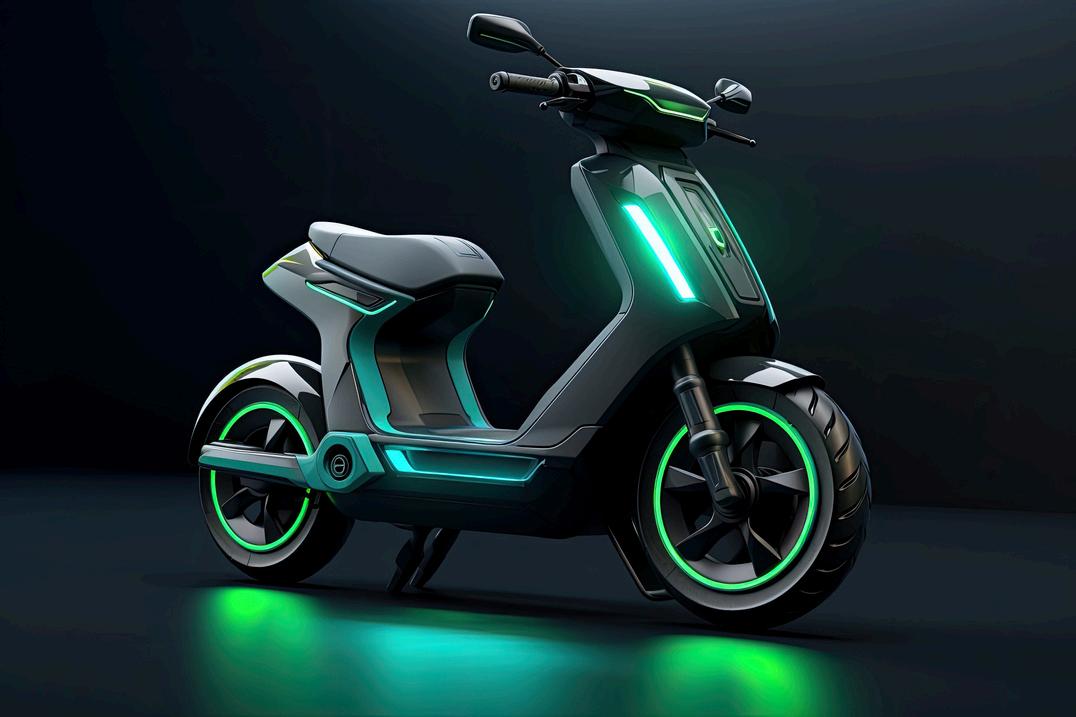
As electric vehicles (EVs) gain traction worldwide, a pivotal component that ensures their efficiency and longevity is the Battery Management System (BMS) With the global electric vehicle market expected to reach $802 billion by 2027, driven by an increasing emphasis on sustainability and technological advancements, the role of BMS in this sector has never been more critical According to recent statistics from BloombergNEF, EVs are projected to account for 50% of global vehicle sales by 2040, underscoring the growing need for robust battery management solutions.
One of the primary functions of a BMS is to safeguard the lithium-ion batteries that power electric vehicles These batteries are known for their volatile nature, making battery safety a top priority BMS technology is designed to operate batteries within safe limits, preventing issues such as thermal runaways major contributors to battery fires By closely monitoring battery conditions and incorporating advanced algorithms, BMS systems significantly reduce the risk of premature battery failure and enhance overall safety
Solutions such as real-time notifications based on sophisticated State of Charge (SOC) and State of Health (SOH) algorithms are important This enables users to take preventive measures to avoid battery degradation and provides critical insights into the remaining usable life of their battery packs Such innovations not only enhance safety but also contribute to prolonged battery lifespan.
Battery Management Systems play a crucial role in optimizing battery performance through effective cell balancing Lithium-ion batteries are composed of multiple cells that can have variations in capacity Without proper balancing, these differences can lead to reduced overall performance and shortened battery life.
There are two main balancing methods: active and passive balancing Passive balancing, which is more commonly used due to its costeffectiveness and ease of implementation, ensures that all cells are evenly charged. However, advanced systems utilize SOC-based balancing rather than voltage-based methods SOC-based balancing is particularly beneficial for cells like Lithium Iron Phosphate (LFP), which exhibit a flat voltage curve between 30% and 70% SOC This maximizes cell capacity and enhances battery performance and longevity.


Designing an effective BMS involves multiple considerations Key factors include efficiency, cost, compatibility with various cell chemistries, and the intended application of the battery system A welldesigned BMS must handle current and voltage demands effectively, utilize appropriate balancing strategies, and integrate seamlessly with other vehicle components Communication protocols such as RS485, CAN, or Bluetooth must be selected based on the application, whether it’s for inverters, two-wheelers, or heavy-duty vehicles
One of the main challenges in BMS development is managing current and thermal performance The choice between MOSFETs and contactors, for instance, impacts heat dissipation and power consumption Designers must carefully balance these factors to ensure optimal thermal management and operational efficiency
Battery Management Systems are essential in advancing electric vehicle technology They ensure safety, enhance performance, and contribute to the overall efficiency and longevity of EV batteries As the industry evolves, continuous innovation in BMS technology will play a crucial role in supporting the growth and adoption of electric vehicles.


Head of Sales & Marketing Lectrix EV
In multiple markets across the globe, recent electric-vehicle (EV) sales trends have spotlighted growing blockers in the transition to sustainable mobility From the purchase and financing of EVs, through to the practicalities of maintenance, a series of factors have influenced the rate at which both private- and fleet-customers are shifting to electrified vehicles
A significant factor in this equation is the experience of charging an EV itself While early adopters will be much more accustomed to maintaining an EV, new customers will have certain expectations of what that experience should entail Particularly if they are accustomed to combustion-engine vehicles, the technicalities and timeframes associated with EV charging are things that will not come as naturally as filling up with gas
On the other side of the equation, there are charge-point operators While there is of course an education and onboarding piece that needs to happen in the EV transition for them, a factor at the forefront of their minds is dependability Charge-point operators need to ensure that their service uptime is as close to 100% as possible, in order to encourage customer loyalty and ensure that the enterprise is profitable Not only this, but fleet operators at businesses looking evercloser at reducing their scope 3 emissions are maintaining a laserfocus on the sustainability of available solutions – which, in this industry today, can prove deal-breaking for service-providers
The expectations of both these stakeholder-groups, ultimately, boils down to two key considerations: performance and reliability. It is therefore critical that charging-infrastructure solutions are equipped with the technology needed in order to deliver these two dealbreakers. In this respect, the bottom line is that EV charging infrastructure must become more convenient, efficient, and sustainable
At Dow, our MobilityScience™ team is engineering energy-efficient charging solutions to support and enhance charging technology that’s primed to meet the needs of today’s and tomorrow's electric mobility infrastructure


The future of sustainable mobility hinges not just on the vehicles we drive, but on the reliability and performance of the infrastructure that powers them.”
Through the power of materials science, charge-point operators can unlock higher-performing, more dependable charging solutions. A number of different factors play a critical role in achieving this:
Maintaining the optimal operating temperature range for charging technology is critical to maximizing its performance From charging guns through to cables, busbars, and charging-station casing, carefully engineered high-performance silicones support the transfer and release of heat generated from high-current charging, which ensures that the charging points can operate most efficiently and maintain requisite charging speed
Charging-point housings must be durable in tough weather conditions and through extensive public use, in order to prevent equipment downtime For example, impact modifiers are added to engineering resins to help charging-point housings achieve improved durability, toughness, and impact resistance Innovative materials such as specially optimized polyurethanes, meanwhile, can be utilized for thermally conductive adhesives, gap fillers and pottants, enhancing safety and fire protection.
By leveraging materials science for achieving fast, safe and reliable EV charging, charge-point operators will lay the essential groundwork for overcoming critical industry challenges in the short- and long-term –solidifying the business-case for mass-market electrification

With the global shift closer to sustainability, EVs are rapidly gaining unexpected momentum India is also set to file exponential growth in EV adoption, with EV sales exceeding 1 5 million in 2023, resulting in a 50% growth in sales than the previous year Government incentives such as the PM E-Drive program, along with advances in battery technology, have been a key motive force in accelerating this variation However, the achievement of mass adoption of EVs depends on dependable charging infrastructure. According to the India Energy Storage Alliance's (IESA) reports, India’s EV charger market is expected to grow at a CAGR of 46 5% by 2030 Moreover, the EV charging market is expected to achieve annual sales of 3 million units to meet the requirement for chargers by FY2030
With the help of various government initiatives such as the National Mission on Transformative Mobility and Battery Storage which helps in promoting the positive impact of mobility in the lives of urban and rural citizens and pushing for infrastructure development, the current network of public chargers in India is 12,146. To support the massive use of EVs, it is important to expand the charging network with fast and efficient solutions, and India is surely unlocking all the potential of electric mobility
Globally, the electric vehicle charging infrastructure is growing, and India has made splendid development in the past few years The country currently has more than 12,000 public charging stations However, the urban regions hold the major share of charging stations in comparison to the rural regions While evaluating EV charging infrastructure, it's important to consider it as something other than a one-size-fits-all solution EV charging stations are divided into three categories: home chargers, public chargers, and fast charging stations Each category comes with its own features and specialty in which fast charging stations are considered a game changer in the EV sector
However, there is a problem in understanding that all charging requirements can be solved by one charger only Charging requirements for light electric vehicles (LEVs) used in cities differ significantly from those for heavy-duty EVs Light EVs such as twowheelers and three-wheelers represent the lowest-hanging fruit in this sector In the current scenario of EVs, there is a whole new range of product lines such as pedal-assist bicycles, SUV scooters, lifestyle motorcycles, and heavy-duty trikes, which have their own requirements for charging However, without the need for ultraexpensive infrastructure, this form of light EV charging is poised to accelerate rapidly, much like the adoption of digital media in India, driven by affordable smartphones and data packs
While working on new technology to surpass other nation's technology, it is obvious to face some challenges or hurdles. Similarly, India also has some challenges in front of it while improving the EV charging infrastructure such as limited investment or improving the grid system However, over the past 5 years, India has been making developments to boost the charging infrastructure in India, specifically through government initiatives consisting of FAME 1&2, and now PM E-Drive, which supports the improvement of charging

infrastructure The PM E-Drive seeks to address the important issue by installing around 48,400 fast chargers for electric 2&3-wheelers However, compared to other nations like China, which has a charging network of 1 8 million robust and standardized public chargers, India is still in the process of achieving that standard.
The future of EV charging lies in progressive technology, which includes wireless charging, ultra-fast charging, and vehicle-to-grid (V2G) systems Wireless charging ends the need for cables, making it a more convenient option to charge Meanwhile, fast charging reduces the time required to charge an electric vehicle, solving the trouble of long waiting lines In addition to this, V2G technology permits EVs to function as an energy storage unit, feeding power back into the grid helps stabilize the demand Moreover, artificial intelligence (AI) and the Internet of Things (IoT) play crucial roles in optimizing charging networks by reducing wait times and enhancing energy efficiency through smart grid integration
iGowise Mobility is at the forefront of these innovations in creating seamless charging experiences by offering the types of electric 2wheelers and trikes that have advanced technology and innovation, understanding the importance of seamless ubiquitous charging They have their patented technology integrated into their models, particularly focusing on energy efficiency, affordability, and smart interfaces iGowise is very optimistic about the growth that India has shown in the past few years, and it believes that in achieving the goal of mass EV adoption, India needs an exponential increase in the number of home-charging & public charging stations, particularly in high-density urban areas and underserved rural areas, to curb the problem of range anxiety Imagine having charging hubs at small businesses like Kirana stores, chai stalls, and roadside dhabas, whether it is a fast-charging station or a plug-in option, it will solve the problem of many commuters These charging spots not only support EV users but also provide an opportunity for business owners to upsell their products to captive customers
However, with these technologies in the EV models and various government initiatives, we can solve the problem of expensive charging stations to be built By focusing on light electric vehicles, India just needs to make normal charging stations in the small gaps, whether it is the parking of a mall or a small Kirana shop. Soon, charging a light EV will be as easy as charging a smartphone at your neighborhood pan shop

Co-founder & Chief Executor iGowise Mobility

Sustainability has taken centre stage in shaping the entire auto industry, which has given the desired thrust to the introduction of EVs in the market While EVs offer a significant reduction in carbon emissions, optimising their sustainability requires a holistic approach Sustainable manufacturing practices throughout the EV supply chain are crucial to maximise environmental benefits and ensure the overall eco-friendliness of these vehicles Incorporating energy-efficient solutions can significantly contribute to yielding the desired result and aid in curtailing the carbon footprint of the sector at the same time
Whether it is the manufacturing of ICE vehicles or EVs, it involves energy-intensive processes to power the various operations and cooling processes Alternatively, a lot of low-grade heat is produced in the process, contributing to greenhouse gas emissions, which, in turn, can defeat the entire objective of reducing impact on the environment Additionally, failing to tap the released heat can further account for wasted resources, opportunities, and money Therefore, industry players should lookout for innovative heat recovery technologies to implement energy-efficient solutions aimed at navigating the challenge of massive electricity requirements and curbing the release of low-grade waste heat into the air
Exploring advanced adsorption chiller technology can invariably support low-grade waste heat recovery for spearheading energysmart green cooling The desiccant adsorption chillers employ innovative green technology, which resides well for harnessing the waste heat released in abundance during the manufacturing process Driving the recovery of waste heat, it leverages circular energy systems, which come in handy for contributing to the sustainable growth of the EV sector
The technology plays a pivotal role in remarkably reducing the operational costs by employing the waste heat to power the various cooling cycles or air conditioning of the HVAC systems Additionally, making use of inert Silica Gel and water, functioning as adsorbent and refrigerant, respectively, translates to outstanding benefits in the form

Sustainability in the auto industry isn’t just about transitioning to electric vehicles. It’s about optimizing every facet of the manufacturing process, from energy consumption to resource management, to ensure that the environmental impact is minimized at every step.”
of ultra-low electricity consumption with a 99% reduction in cooling costs Negating the dependence on electricity to drive cooling systems, it drastically gives a lot of relief to pressure created on the power grids, thereby aiding in the preservation of natural resources
Here, utilizing portable water as refrigerant transcends the advantages of energy efficiency and cost reduction and fortifies the endeavour of combating ozone depletion Considering that conventional systems contain synthetic refrigerants such as chlorofluorocarbons, hydrofluorocarbons, etc that rupture the ozone layer and accentuate global warming, adsorption chillers making use of water provide a green solution to EV manufacturing The technology is futuristic in terms of operating under vacuum, assisting in noiseless processes, and providing a comprehensive green and sustainable solution for EV manufacturing
Looking at the benefits of advanced chillers facilitating low-grade heat recovery, it has a lot of potential to revolutionize the manufacturing of EVs Levelling up the offering of sector, it truly manifests and resonates with the entire purpose of introducing electric vehicles for reducing the deteriorating effect of automobiles on the environment Therefore, dwelling in the unexplored benefits of technology can open immense opportunities for industry players to not just comply with the environmental guidelines but also help them drive huge profit simultaneously

Chairman, Pahwa Group & Managing Director
The development of a robust electric vehicle charging infrastructure (EVCI) across India is a significant imperative for the transition towards electric mobility. In September, the Electric Vehicle (EV) industry witnessed two major policy announcements supporting this narrative
The ‘PM Electric Drive Revolution in Innovative Vehicle Enhancement (PM E-DRIVE) Scheme’ announcement by the Ministry of Heavy Industries (MHI) The PM E-DRIVE doubled the outlay to Rs 2000 crores for the installation of 72,300 public charging stations (PCS) in selected cities and highways This was followed by the publication of "Guidelines for Installation and Operation of Electric Vehicle Charging Infrastructure-2024" (EVCI Guidelines 2024) by the Ministry of Power (MoP)
The MoP guidelines on EVCI, first published in 2018, have undergone five amendments with the most recent one in 2023. Such an evolutionary and distinctive approach has guided a ninefold increase in the number of EV charging stations (EVCS) from 2022 to 2024 In line with this, a forward-thinking and holistic approach towards the EVCI ecosystem is evident in the 2024 version compared to its preceding versions. Yet, the revised guidelines miss out on including key aspects related to making charging stations reliable and accessible as seen in the global frameworks for EV charging
EVCI Guidelines 2024 is a step in the right direction
The scope of applicability of these guidelines has been strengthened to include wider and more diverse use cases such as housing societies, municipal parking spaces, railway and metro stations, etc In addition to this, these guidelines have encapsulated the general requirements for the promotion of community charging at resident welfare associations, and group housing societies to facilitate the essential EVCI in residential settings
The guidelines have enabled the promotion of charging during solar hours and renewable energy integration. This has been done by allowing for single-part and reduced tariffs during solar hours (9 AM–4 PM) until 2028 and recommendations to implement Vehicle-to-Grid (V2G) technology and solar carport The former allows EVs to send stored electricity back to the grid while the latter is a covered parking area equipped with solar panels that generate power, which can be used to charge EVs or supply energy to buildings
The guidelines have specified an expanded network of EVCS from 2022 guidelines with at least one in a 1x1 km grid (previously 3x3) in urban areas and every 20 km (previously 25) on both sides of highways, expressways, and major roads These guidelines, to allow for a userfriendly experience at charging stations, have recommended CPOs to adopt open communication protocols such as Unified Energy Interface (UEI), Open Charge Point Protocol (OCPP), Open Charge Point Interface (OCPI) & Open Automated Demand Response (open ADR)
From a state government perspective, to allow for a strategic citing of charging stations, the guidelines have mandated the State Nodal Agencies and Municipal Commissioners to conduct a yearly assessment of potential charging demand across their geographical area They are mandated to publish this data with the Charge Point Operators (CPOs) The guidelines have recommended the constitution of a state-level steering committee chaired by the Energy Secretary and comprising secretaries from Transport, Municipal Administration, and Urban Development departments, etc for the effective implementation of EVCI

Some elements still miss out - Uptime and Accessibility
As mentioned above, the new EVCI guidelines 2024 covers the ground in terms of most of the elements that are essential for enabling an accelerated effort towards deployment of charging stations from public to home charging. However, these guidelines miss out on underscoring two key attributes - regulating the reliability of charging points (commonly called ‘uptime’ by CPOs ) and measures to improve accessibility at charging stations Both these attributes play a big factor in the increased utilisation of EV charging stations and governments globally have stipulated regulations to account for these parameters.
In the United States (US), the National Electric Vehicle Infrastructure (NEVI) Formula Program has set minimum standards and requirements for EVCI projects across the country These standards have mandated an uptime requirement of 97% for each port in the charging stations. In addition to this, these standards also mandate that EV charging stations are laid down in compliance with the American Disabilities Act (ADA)
In Australia, the Minimum Operating Standards for Governmentsupported Public Electric Vehicle Charging Infrastructure have developed nationally consistent standards to provide public confidence in transitioning to EVs These standards have mandated an uptime requirement of a minimum of 98% for each plug at the charging site with a specific formula also being laid down In addition to this, these standards mandate compliance with Disability Accessible Parking Bay (DAPB) standards for at least one charging bay within a charging site
In the United Kingdom (UK), The Public Charge Point Regulations 2023 impose certain requirements for CPOs operating public charging points These standards have mandated the CPOs to ensure an average uptime of 99% across their network of rapid charge points while also laying down the considerations for measuring the uptime The CPOs are also required to submit an annual report regarding the uptime to the Secretary of State.
A Case for Inclusion
As we have seen above, there is global recognition of the two elements identified earlier in reliability and accessibility requirements Regulating the reliability of CPOs with a well-defined formula to determine uptime and allowing for phased implementation is the way forward for the Indian scenario In terms of accessibility, compliance with The “Rights of Persons with Disabilities Act, 2016” and associated rules will go a long way in amplifying the inclusiveness of EV transition However considering the evolving nature of the charging ecosystem, the CPOs should be given ample time so as to avoid regulatory burden
There is a strong case for the inclusion of these two elements in the forthcoming versions of the EV charging guidelines for the development of EVCI which is widely accessible and efficient across India This will be a major leap in the revolution towards an EV-Ready India by effectively utilising the increased PM E-Drive allocations on EVCI

Lead, Centre for Clean Mobility OMI Foundation

How did Lithium Urban Technologies transition from traditional mobility to EVs and what key factors drove this shift?
Lithium Urban Technologies began its journey in 2014, well before electric vehicles (EVs) became mainstream The shift to EVs was driven by the clear need to decarbonize urban mobility, especially given the growing environmental concerns and the push for sustainable transportation solutions The key factors that motivated the transition were the potential to reduce carbon footprints, align with global sustainability goals, and pioneer an emerging industry that was set to redefine urban transportation in India Today, Lithium operates a fleet of over 2,500 EVs and 1,700 chargers across 15 cities, serving over 100 clients in the B2B space
The company’s early commitment to EVs and continuous investment in technology has helped it emerge as a leader in the sector.
How vital are government and private sector collaborations in developing India's EV charging ecosystem?
Scaling the EV fleet infrastructure in India came with a unique set of challenges, including limited charging infrastructure, high initial vehicle costs, and gaps in technological integration
Another challenge was ensuring the availability of reliable vehicles and building a seamless operational process for fleet management
Lithium overcame these hurdles by adopting a technology-driven approach, optimizing vehicle utilization through connected car systems, and implementing algorithms for efficient charging management.
Looking ahead, the role of EV charging infrastructure is critical for mass adoption As EV penetration increases, scalable, fast, and affordable charging solutions will be key.

Lithium Urban Technologies
Lithium Urban Technologies transitioned to EVs in 2014, driven by a commitment to decarbonizing urban mobility and aligning with global sustainability goals
Challenges in scaling EV infrastructure included limited charging stations and high vehicle costs, which were overcome through technology-driven optimization and fleet management
Public-private partnerships are crucial for scaling EV infrastructure in India, with collaborations between the government and private sector driving innovation and operational efficiency
Lithium plans to continue expanding its charging infrastructure while driving innovation to reduce latency in charging time and increase vehicle availability, ensuring that India’s growth in the EV space is well-supported
How vital are public-private partnerships for developing India's EV charging infrastructure, given your background in international business?
Collaborations between the government, the private sector, and stakeholders are absolutely essential in building a robust EV charging ecosystem Public-private partnerships (PPP) play a pivotal role in scaling infrastructure rapidly, especially in a diverse and developing market like India Governments can create a favorable regulatory environment and provide incentives, while private players like Lithium can bring innovation, technology, and operational efficiency
International collaborations also help in adopting global best practices and integrating newer technologies Lithium’s strategic partnerships, such as with Uber, exemplify how collaborations drive growth Moving forward, it will be crucial to create unified frameworks that ensure charging infrastructure meets future demands while maintaining high operational efficiency and low costs
How has Lithium Urban Technologies streamlined operations and scaled in the fast-paced EV sector?
Technology has been the backbone of Lithium's operational efficiency From using connected cars and telematics to adopting machine learning (ML) and artificial intelligence (AI) for predictive analytics, Lithium has successfully streamlined various aspects of its operations. The company tracks various parameters of the fleet at periodic interval, enabling real-time data analysis and decision-making
Keyinnovationsinclude:
Fleet Optimization: Using data-driven algorithms to determine when and where vehicles should charge, ensuring maximum utilization.
Driver Management: A digital platform that manages the entire driver lifecycle, handling everything from recruitment to payroll, ensuring transparency and improving retention
Vehicle Health Monitoring: By closely monitoring vehicle performance, Lithium ensures a high level of availability and reliability, maintaining a 91% vehicle availability rate.
These processes, integrated with CRM and visualization tools have empowered employees at all levels to manage data effectively, leading to improved operational metrics, reduced lead times, and better customer satisfaction
How will fast charging technologies impact Lithium Urban Technologies' fleet management and electric mobility?
As the company scales, minimizing vehicle downtime through faster charging will be crucial to maintaining high availability and ensuring operational efficiency Fast charging will not only allow us to manage a larger fleet more effectively but will also support its broader ambitions of mass adoption of electric vehicles (EVs) in India’s urban landscapes
Lithium envisions incorporating more fast chargers across its infrastructure network, reducing latency in charging time, and increasing fleet uptime, ultimately delivering better value to customers and drivers alike Fast charging technologies will play a key role in supporting the company's fleet electrification efforts, particularly as it expands into more cities and larger business operations

India's electric vehicle (EV) sector is growing rapidly, and at the heart of this transformation are companies that are shaping the future of EV charging infrastructure As more electric vehicles hit the roads, the demand for accessible, reliable, and efficient charging stations has become critical. This shift is creating opportunities for companies to play a key role in India's EV journey, and several leading players are already emerging as pioneers of change in the EV charging space
One of the leading names in the industry is Tata Power. As one of India's largest integrated power companies, Tata Power has taken a significant step toward building a comprehensive EV charging network The company has installed over 50,000 home chargers and more than 1,000 public chargers across different cities, making it one of the most extensive networks in India. Their focus on both home and public charging solutions ensures that EV users can charge their vehicles conveniently Tata Power's vision is to expand its network to reach over 25,000 charging points in the next few years, making EV adoption easier for consumers across the country
Another key player in this sector is EVRE, which focuses on building smart, sustainable, and connected EV charging solutions EVRE specializes in setting up charging infrastructure in public spaces, commercial buildings, and residential areas, and they offer advanced charging management systems that enhance efficiency. Their innovative approach allows for real-time monitoring of charging points, helping to reduce operational costs and improve user experience. EVRE's partnerships with various industries and governments have allowed them to build a strong presence in the Indian market
Besides these large companies, new players are also entering the scene, and one such name is Static. Static is a homegrown EV charging company that aims to make EV charging accessible to all The company has launched a mobile app that helps users locate nearby charging stations, making it easier to charge vehicles on the go Statiq's focus is on creating a network of fast-charging stations that will cater to both two-wheelers and four-wheelers. Their technology-driven approach ensures that EV users can charge their vehicles quickly and conveniently, even in remote locations

On the international front, companies like ABB and Fortum have also made a mark in India’s EV charging space ABB, a global technology leader, has introduced fast-charging solutions in India, which can charge an electric vehicle within minutes The company’s fast chargers are designed to handle high volumes of energy efficiently, making them suitable for highways and urban areas Similarly, Fortum, a Finnish company, has partnered with several Indian firms to develop a robust charging network Their expertise in clean energy and EV infrastructure makes them a key player in India’s transition to electric mobility.
In addition to these established companies, start-ups like Ather Energy are contributing to the growth of EV charging infrastructure Ather Energy, known for its electric scooters, is also expanding its fast-charging network, Ather Grid, across major cities in India. By setting up charging stations at strategic locations, such as malls and tech parks, Ather aims to encourage more people to adopt electric vehicles by solving the challenge of charging availability
The rise of EV charging infrastructure in India is essential for the country's transition to electric mobility These leading companies, whether large corporations or innovative start-ups are working together to build a reliable and extensive network that supports the growing number of electric vehicles on Indian roads. Their combined efforts are not only driving the adoption of electric vehicles but also contributing to a cleaner, more sustainable future for the country.
As India continues to push for greener solutions, the development of a robust EV charging network will play a critical role in shaping the nation's energy landscape These pioneers of change are leading the way, ensuring that the shift to electric vehicles is both smooth and sustainable for future generations
In recent years, India has witnessed a significant push towards electric vehicles (EVs) to reduce pollution and dependence on fossil fuels As part of this shift, the government has introduced various policies and regulations to support the development of EV charging infrastructure. These changes have profound implications for the growth of charging stations across the country
|

The government's National Electric Mobility Mission Plan aims to increase the adoption of electric vehicles and establish a robust charging network. It sets ambitious targets for EV sales and outlines the need for a reliable charging infrastructure By providing incentives for manufacturers and investors, the government hopes to stimulate growth in this sector
One major regulation is the introduction of guidelines for setting up public charging stations These guidelines specify the technical standards for charging equipment and the requirements for permits and approvals They ensure that the stations are safe and accessible to all EV users This clarity in regulations is crucial for investors looking to enter the market, as it reduces uncertainties and fosters confidence
State governments have also been active in shaping the EV charging landscape Several states offer subsidies and incentives for setting up charging stations. These incentives can cover costs related to equipment procurement and installation, significantly lowering the barrier to entry for businesses By tailoring policies to local needs, states can accelerate the deployment of charging infrastructure
Moreover, the government's focus on renewable energy is closely linked to the growth of EV charging stations The integration of solar power into the charging network can enhance the sustainability of EVs Policies encouraging the use of renewable energy sources for charging stations can lower operational costs and reduce the carbon footprint of electric vehicles.

However, challenges remain The implementation of these regulations varies across states, leading to inconsistencies in the availability of charging stations In some areas, the lack of infrastructure hampers the growth of EV adoption Additionally, there is a need for public awareness regarding the benefits of electric vehicles and the locations of charging stations Addressing these issues is vital for creating a seamless EV experience for consumers
Another important aspect of the regulatory landscape is the establishment of tariffs for charging services. The government is working on frameworks that will ensure fair pricing for consumers while providing a return on investment for charging station operators This balance is essential to make EV charging economically viable and attractive to both businesses and consumers.
As the market evolves, ongoing dialogue between government agencies, industry stakeholders, and consumers is crucial Feedback from these groups can help refine policies and address emerging challenges. Engaging with all stakeholders fosters collaboration and creates a more supportive ecosystem for EV charging infrastructure
In summary, navigating the evolving landscape of government regulations is key to the success of EV charging stations in India While the policies and incentives provided by the government are a step in the right direction, consistent implementation and stakeholder engagement are essential for overcoming challenges By fostering a robust and accessible charging network, India can accelerate the adoption of electric vehicles and contribute to a cleaner, more sustainable future.

The Indian government has been actively pushing forward initiatives to accelerate the development of electric vehicle (EV) infrastructure As the country grapples with growing environmental concerns and aims to reduce its dependence on fossil fuels, EVs have emerged as a critical part of India's green transition. To make this shift smoother, various policy measures are being implemented to create a robust infrastructure that can support widespread EV adoption
One of the most significant efforts has been the FAME II (Faster Adoption and Manufacturing of Hybrid and Electric Vehicles) scheme, which was launched in 2019 This program aims to promote the use of electric vehicles by offering incentives to buyers, making EVs more affordable FAME II is designed not just to stimulate demand but also to improve the availability of charging stations across the country The government allocated a substantial amount of money under this scheme to establish over 2,600 EV charging stations in key locations, including urban centers, highways, and industrial hubs
Another crucial government initiative is the Production-Linked Incentive (PLI) Scheme for advanced chemistry cell (ACC) batteries EV batteries are a vital component of the electric vehicle ecosystem, and the PLI scheme encourages domestic manufacturing of these batteries By reducing dependence on imports, India aims to build a sustainable and self-reliant EV industry This initiative directly supports the growth of EV infrastructure by ensuring that affordable and reliable batteries are available, which, in turn, makes electric vehicles a more attractive option for consumers
State governments have also played a significant role in shaping EV infrastructure Several states have rolled out their own EV policies, focusing on incentives for consumers, tax benefits, and developing charging infrastructure For instance, Delhi's EV Policy aims to make the capital a global leader in electric mobility by promoting the use of two-wheelers, public transport, and shared mobility vehicles

The policy offers incentives for purchasing EVs, as well as subsidies for setting up charging infrastructure, which is key to making electric vehicles accessible and convenient for the public
Public-private partnerships (PPP) have been another important element in the push for EV infrastructure The Indian government has encouraged private companies to collaborate on setting up charging networks across the country These collaborations have led to the rapid expansion of charging points, particularly in urban areas and along key transportation routes. Companies like Tata Power, Energy Efficiency Services Limited (EESL), and other major energy players have already installed numerous charging stations This approach not only speeds up the infrastructure development process but also ensures that the private sector remains invested in the long-term success of EVs in India
The government has also introduced favorable tax policies to support the EV ecosystem. Goods and Services Tax (GST) on electric vehicles has been reduced from 12% to 5%, and there are additional income tax benefits on loans taken to purchase EVs These financial incentives help make EVs more affordable to the average consumer, which in turn boosts demand As demand grows, the need for a wellestablished charging infrastructure becomes more urgent, driving further investment in this area
Looking ahead, the National Electric Mobility Mission Plan (NEMMP) envisions a comprehensive roadmap for the future of EVs in India The plan focuses on promoting research and development, encouraging local manufacturing, and creating a policy framework that attracts investments in the EV sector
In conclusion, the Indian government's proactive policies and initiatives are creating a strong foundation for EV infrastructure. With programs like FAME II, PLI, and various state policies, the future of electric mobility in India looks promising These efforts, along with continued public and private collaboration, are set to make electric vehicles a mainstream mode of transport in the years to come

The electric vehicle (EV) sector in India is witnessing a surge in investments, driven by the growing demand for sustainable transportation solutions As the country aims to reduce its carbon footprint and combat air pollution, the focus on EVs has never been more critical. Various stakeholders, including government bodies, private companies, and foreign investors, are capitalizing on this momentum, making significant investments in the industry
The Indian government has implemented several initiatives to promote electric mobility. The Faster Adoption and Manufacturing of (Hybrid &) Electric Vehicles (FAME) scheme is one of the key policies supporting EV adoption This initiative offers financial incentives for electric vehicles, encouraging manufacturers and consumers to transition to greener alternatives Additionally, the National Electric Mobility Mission Plan (NEMMP) aims to achieve a substantial increase in electric vehicle sales by 2030 These government measures provide a favorable environment for investors looking to enter the EV market.
In recent years, several startups and established companies have entered the Indian EV market, seeking to innovate and expand their offerings Major players like Tata Motors, Mahindra Electric, and Hero Electric are leading the charge, launching new models and enhancing their charging infrastructure These companies are attracting investments to bolster their production capabilities and research and development efforts For instance, Tata Motors has announced plans to invest significantly in EV manufacturing, aiming to launch multiple electric models in the coming years.
Foreign investments are also flowing into the Indian EV sector Companies like Tesla and Hyundai are exploring opportunities to establish a presence in the market Tesla, known for its advanced EV technology, has expressed interest in setting up manufacturing facilities in India This move could create numerous job opportunities and boost local manufacturing, further stimulating the economy Hyundai, too, has committed to investing in EV production, showcasing its electric models at various auto expos

Investment trends in the EV sector are also shifting towards charging infrastructure development As the number of electric vehicles on the road increases, the demand for charging stations is growing Companies are recognizing the importance of establishing a robust charging network to support EV users. Investments in charging solutions, including fast chargers and home charging units, are becoming essential Startups like Ather Energy and ChargePoint are leading the way in creating innovative charging solutions, attracting significant venture capital funding
Moreover, battery technology is a critical aspect of the EV ecosystem Investors are keen on supporting companies focused on developing advanced battery solutions to enhance the range and efficiency of electric vehicles With the rise in battery technology startups, there is a push towards localizing battery manufacturing to reduce dependence on imports This localization effort aligns with the government's initiative to promote “Make in India,” making the country a hub for EV battery production.
The outlook for investments in India's EV sector remains positive, with significant potential for growth As more consumers adopt electric vehicles, the need for supportive infrastructure, technology, and innovation will continue to rise. This presents ample opportunities for investors seeking to capitalize on the transition towards sustainable transportation With a combination of government support, private sector initiatives, and foreign investment, India is poised to become a significant player in the global electric vehicle market.
In conclusion, the Indian EV sector is witnessing a transformative phase, characterized by rising investments across various segments As the demand for electric vehicles grows, stakeholders are seizing opportunities to contribute to a greener future. With ongoing advancements in technology and infrastructure, India’s electric vehicle market is set to thrive, making it an attractive destination for investment

The electric vehicle (EV) sector in India is rapidly evolving, bringing with it a host of opportunities and challenges, particularly in the charging infrastructure space As the government pushes for cleaner energy and aims to reduce the country's dependence on fossil fuels, the demand for EVs is expected to surge. However, the success of this shift hinges significantly on the development of an extensive and reliable charging network
One of the most promising opportunities in the EV charging business is the growing consumer interest in electric vehicles. With rising awareness of climate change and pollution, many consumers are looking to make eco-friendly choices This trend has led to an increase in the sale of electric scooters, bikes, and cars, driving the need for more charging stations across urban and rural areas Entrepreneurs and businesses can capitalize on this trend by investing in charging infrastructure, making it a lucrative venture in the long run
Government initiatives also play a crucial role in boosting the EV charging market The Indian government has launched several policies, such as the Faster Adoption and Manufacturing of Electric Vehicles (FAME) scheme, which aims to incentivize EV buyers and manufacturers. Additionally, various state governments are providing subsidies for setting up charging stations These incentives can make it financially viable for businesses to invest in charging infrastructure, ensuring a steady return on investment
Partnerships between private companies and government entities are emerging as a common strategy to enhance the charging network Collaborations between automakers, energy providers, and technology firms can facilitate the development of advanced charging solutions For example, companies like Tata Power and Ather Energy are working together to create smart charging stations that utilize renewable energy sources Such collaborations not only improve the accessibility of charging stations but also contribute to sustainable energy practices

Despite the bright prospects, several challenges still hinder the growth of the EV charging business One significant obstacle is the high initial investment required to set up charging infrastructure Installing charging stations, especially fast chargers, can be costly, and many small businesses may struggle to secure the necessary funding Additionally, the lack of standardization in charging technology can confuse consumers and deter them from adopting EVs
Another challenge is the concern over the grid's capacity to handle increased electricity demand due to widespread EV usage As more charging stations are installed, the existing grid infrastructure may become strained, leading to potential power shortages. Addressing this issue will require significant investment in grid upgrades and the integration of renewable energy sources Consumer behavior is also a critical factor Many potential EV buyers still have concerns about the availability of charging stations, especially for long-distance travel. The fear of running out of charge, known as "range anxiety," can deter people from purchasing electric vehicles Building a robust and reliable charging network is essential to alleviate these fears and encourage wider EV adoption
To overcome these challenges, businesses must focus on innovative solutions Developing mobile apps that help users locate nearby charging stations or provide real-time availability updates can enhance the user experience Furthermore, implementing subscription-based models or offering incentives for frequent users can attract more customers to charging stations.
In conclusion, the business of charging in India’s EV sector presents significant opportunities alongside notable challenges With the government's supportive policies and growing consumer interest, the profit potential is immense. However, addressing the hurdles related to infrastructure, investment, and consumer perception will be crucial for the industry’s success By fostering collaboration and innovation, stakeholders can work together to create a sustainable and efficient charging ecosystem that supports India's transition to electric mobility.

The Indian government has been actively working to promote electric vehicles (EVs) and enhance the charging infrastructure across the country Recognizing the urgent need to reduce air pollution and dependence on fossil fuels, the government has implemented several initiatives aimed at increasing the availability and accessibility of EV charging stations
One of the key components of these initiatives is the Faster Adoption and Manufacturing of Electric Vehicles (FAME) scheme Launched in 2015 and expanded in subsequent years, FAME offers financial incentives for the purchase of electric vehicles and the establishment of EV charging infrastructure The scheme aims to make electric vehicles more affordable for consumers while simultaneously encouraging the growth of charging facilities
In addition to financial incentives, the government has also set ambitious targets for the deployment of charging stations The National Electric Mobility Mission Plan (NEMMP) outlines the vision for electric mobility in India and aims to create a robust charging network that meets the needs of a growing number of EVs on the roads The plan emphasizes the need for charging stations in urban areas, highways, and rural regions, ensuring that all EV users have convenient access to charging facilities.
To support the development of charging infrastructure, the government has also streamlined the approval process for setting up EV charging stations Local authorities are encouraged to provide necessary permits and approvals quickly, facilitating the establishment of new charging points Additionally, the government is collaborating with private players and public sector companies to expand the network of charging stations across the country
Moreover, the government is working to raise awareness among consumers about the benefits of electric vehicles and the importance of utilizing charging stations

Educational campaigns and promotional events are being organized to inform the public about the advantages of EVs, such as lower running costs, environmental benefits, and government incentives
Another significant step taken by the government is the introduction of guidelines for the installation of EV charging infrastructure These guidelines provide a framework for standardizing the setup and operation of charging stations, ensuring safety and reliability for users They cover aspects such as charging station design, equipment specifications, and operational protocols, which are crucial for building consumer trust in the EV ecosystem
State governments are also playing a vital role in boosting EV charging infrastructure Many states have introduced their own policies and incentives to promote electric mobility. These include subsidies for setting up charging stations, tax exemptions, and additional incentives for private players to invest in charging networks
The government is also exploring innovative solutions for charging infrastructure, such as solar-powered charging stations and battery swapping systems These solutions aim to enhance the efficiency and sustainability of EV charging, making it easier for consumers to charge their vehicles while minimizing the environmental impact
In conclusion, the Indian government is making significant strides to boost EV charging infrastructure through various initiatives and policies. By providing financial incentives, streamlining approvals, raising awareness, and collaborating with private players, the government aims to create a robust network of charging stations This is crucial for supporting the growing adoption of electric vehicles, ultimately contributing to a cleaner and more sustainable future for India.
When innovation meets needs, great things happen and Numeros Motors has worked on these lines with the launch of Diplos, India’s only indigenously built electric scooter designed exclusively for commercial use In a time when businesses seek eco-friendly, cost-effective tool that would help grow their microbusiness, Diplos stands tall, delivering powerful performance and versality and tailor made features for the growing needs of hyperlocal deliveries and fleet management
Variants of Diplos: Designed to Empower Your Business
Diplos comes in two variants, each addressing the unique needs of businesses and individual owners Whether you run a large fleet of electric vehicles or are a single rider-owner, Diplos offers the flexibility to match your exact requirements
Diplos i-Pro: The flagship variant designed for fleet owners and commercial companies This model boasts dual parallel batteries for extended range, combined with full connectivity solutions. With this advanced variant, businesses can enjoy real-time data analytics, fleet management and predictive maintenance, ensuring operational efficiency and minimizing downtime. The Diplos i-Pro is ideal for highdemand fleet operations requiring peak performance and reliability
Diplos Pro: Catering to the value-conscious rider, this variant offers all the essential features minus the connectivity services Designed for individual owners and smaller businesses, the Diplos Pro delivers excellent performance at a more accessible price point while maintaining the core strengths that make Diplos the ultimate tool for commercial applications
About Diplos: Unleashing the Future of Business Mobility
With the Diplos, businesses can elevate their operations to newer heights. It’s thrilling top speed of 63 kmph and an impressive IDC range of up to 140 km on a single charge set the standard for commercial EVs Powered by two removable batteries with parallel discharge technology, it ensures that your vehicle keeps going strong, even over long distances, without the need of frequent recharging Its portable charger further adds convenience, allowing you to recharge anytime and anywhere, minimizing downtime and maximizing productivity What sets the Diplos apart is its ability to perform seamlessly in diverse urban environments With its exceptional gradeability, the Diplos tackles even steep inclines (up to 12 degrees) without losing power, making it perfect for city landscapes.
This performance is matched by best-in-class pick-up, ensuring that no delivery, no matter the terrain, is out of reach
For business owners, it’s more than just a scooter it’s a powerful asset that can propel your operations forward
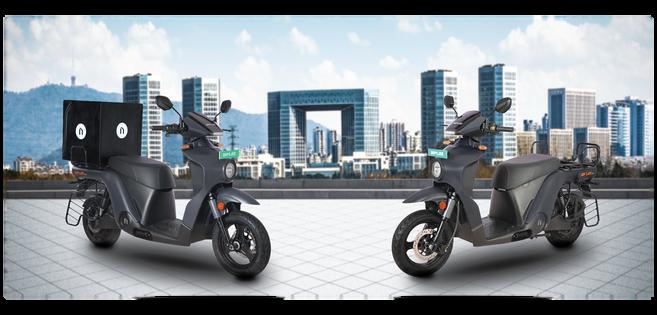

Designed for businesses that demand efficiency, the Diplos takes cargo management seriously It’s enhanced utility space ensures that you can carry more load in each trip, from groceries to pharmaceutical products, minimizing the need for multiple runs and boosting your overall productivity. Not just a workhorse, the Diplos prioritizes rider comfort, too With adjustable rear shock absorbers, it guarantees a smooth ride, no matter how heavy the payload, ensuring that both rider and cargo reach their destination safely The Diplos is built on a robust square chassis, delivering unmatched durability and longevity Whether you're zipping through crowded city streets or making long-haul deliveries, this electric scooter provides the confidence to take on any challenge
For businesses managing large fleets, the Diplos i-Pro brings advanced solutions to the table with its connectivity suite By capturing comprehensive vehicle data, fleet managers can leverage predictive maintenance features to avoid unscheduled downtime, optimizing their fleet's performance at every level. Whether it’s monitoring battery levels, tracking range, or analysing overall performance, our digital cluster provides actionable insights that empower fleet owners to make datadriven decisions and stay ahead of the competition
Time is money in the world of logistics, and the Diplos recognizes this With it’s powerful 1.1 kW charger, you can charge your vehicle swiftly and efficiently, minimizing downtime and maximizing your operational hours By drastically reducing the time it takes to get your scooter back on the road, Diplos ensures that your business is always moving forward
Versatility for Multiple Commercial Uses
The Diplos offers unparalleled versatility across a variety of commercial sectors From logistics deliveries to food delivery, pharmaceutical distribution to grocery services, it proves to be an indispensable asset for large companies and small businesses alike. It's the perfect fit for kirana stores, milk distributors, and water can suppliers, offering efficiency and eco-friendliness that meet the demands of today’s market
The Diplos Difference: Drive Into the Future
At Numeros Motors, we are committed to shaping the future of commercial transportation. With the Diplos, we have combined and performance features and Utility based design into a single package that not only meets the needs of today’s businesses but also anticipates tomorrow's challenges Whether you're managing a fleet of delivery vehicles or running a small business, Diplos is the partner you need to power your growth, cut operational costs, and embrace the electric revolution
Make the smart choice today Explore the Diplos, take a test ride and discover how this indigenously built electric vehicle can transform your business.
For more information, visit Numeros Motors or contact us to schedule your test ride of Diplos today!





COMPANY EXCELLENCE AWARDS


Company of the Year: Battery Manufacturing - Li-ion Battery
Trontek Electronics Limited
p guides Gujarat toward a brighter tomorrow. By visionary leaders, we celebrate the progress of state.
Company of the Year: Battery Components Manufacturing (Anode Material)
Company of the Year: Research & Development (Material)
Epsilon Advanced Materials Pvt. Ltd.

Battery Manufacturing Solution Provider ( Assembly Line)
SEMCO Infratech

Company of the year: Battery Recycling & Reuse
LICO Materials Private Limited

mpany of the Year: Battery sing


Company of the Year: After-Sales Support
Amara Raja Advanced Cell Technologies Pvt. Ltd.
Company of the Year: Battery Raw Material (Sourcing/ Supply)
Epsilon Advanced Materials Private Limited

Start-up of the Year: EV Battery Cell Manufacturing
TECHNOLOGY AND INNOVATION
EXCELLENCE AWARDS

Battery Material & Chemistry Innovation of the Year
Epsilon Advanced Materials Private Limited


Technology Innovation in EV
Battery Safety
CAL-ON Industries Limited
Battery Packaging (Design)
Amara Raja Advanced Cell Technologies Pvt. Ltd.



Best Seller Battery of the Year (Most Popular Model)
Amara Raja Advanced Cell Technologies Pvt Ltd
Outstanding Contribution to EV Battery Advancement a Mobility
Ruzain Energy Pvt. Ltd
New Product Launch of the YearBattery
Trontek Electronics Limited
LEADERSHIP EXCELLENCE AWARDS

EV Battery Supply Chain Leader of the Year
VIKRAM HANDA
Managing Director
Epsilon Advanced Materials Pvt. Ltd.

MANNE VENKATESWARLU
Chief Technology Officer Kushmanda Power Limited




Electric vehicles (EVs) are rapidly gaining popularity, driven by the urgent need for sustainable transportation solutions As more people adopt EVs, the demand for efficient and reliable charging infrastructure has grown Innovations in EV charging technology are paving the way for a cleaner and greener future
One significant advancement is the development of ultra-fast charging stations These stations can charge an EV’s battery to 80% in as little as 15 to 30 minutes, significantly reducing the time drivers spend waiting Companies like Tesla, ChargePoint, and Electrify America are leading the charge, installing networks of fast chargers across highways and urban areas This technology helps to ease range anxiety, a common concern among potential EV buyers, by making long-distance travel more feasible.
Another exciting innovation is the introduction of wireless charging technology This technology uses magnetic resonance to transfer energy from a charging pad embedded in the ground to a receiver on the EV. While still in the early stages of development, wireless charging offers convenience and ease of use Drivers can simply park their EV over a charging pad and start charging without the need for cables This method is particularly beneficial in public charging stations, as it simplifies the process and makes it more accessible for all users.
Vehicle-to-grid (V2G) technology is also making waves in the EV charging landscape V2G allows EVs to not only draw power from the grid but also supply power back to it This two-way energy flow can help stabilize the grid during peak demand times. For instance, when EV owners park their vehicles and connect them to the grid, they can sell excess energy stored in their batteries back to the utility This not only provides a financial incentive for EV owners but also supports grid stability and encourages renewable energy use

Smart charging solutions are another area where innovation is thriving These solutions leverage advanced software and connectivity to optimize the charging process With smart chargers, EV owners can schedule charging during off-peak hours when electricity is cheaper Additionally, these chargers can be integrated with renewable energy sources, allowing users to charge their vehicles using solar or wind power This not only reduces costs for the user but also minimizes the environmental impact of charging
Moreover, there’s a growing trend toward integrating EV charging stations with existing infrastructures, such as parking lots and shopping centers This integration makes charging more convenient for EV owners For example, some retail stores are installing charging stations for customers while they shop, turning charging time into productive time Cities are also considering adding charging stations in public areas to ensure that EV owners can access charging easily
Battery technology is also advancing alongside charging technology. The development of solid-state batteries promises faster charging times, increased range, and enhanced safety compared to traditional lithium-ion batteries These new batteries can handle higher energy densities and are less prone to overheating, making them a safer option for EVs
In conclusion, the innovations in EV charging technology are essential for supporting the growing demand for electric vehicles With ultra-fast charging stations, wireless charging, V2G capabilities, smart solutions, and improved battery technology, the future of EV charging looks bright. These advancements will not only enhance the EV ownership experience but also contribute to a more sustainable and environmentally friendly transportation system As technology continues to evolve, the transition to electric mobility will become even more seamless and efficient, making it easier for everyone to charge ahead into a greener future.



TOP EV TWO WHEELER SALES IN INDIA, AUGUST 2024 TOP EV THREE WHEELER SALES IN INDIA, AUGUST 2024

TOP EV TWO WHEELER SALES IN INDIA, SEPTEMBER 2024 TOP EV THREE WHEELER SALES IN INDIA, SEPTEMBER 2024
India is witnessing a rapid transformation in its electric vehicle (EV) ecosystem, and one of the most significant areas of focus is the expansion of the EV charging infrastructure As the country moves toward a future of cleaner transportation, recent developments, and trends in EV charging are paving the way for greater adoption of electric vehicles
The government of India has been actively pushing for the electrification of transportation through its policies and initiatives. One of the key programs driving this change is the Faster Adoption and Manufacturing of Hybrid and Electric Vehicles (FAME) scheme In its second phase, FAME II focuses heavily on building a strong charging infrastructure, allocating funds to install public charging stations across major cities and highways. This effort is crucial as one of the main challenges for EV adoption in India has been the lack of a widespread and reliable network of charging stations
In recent months, several private players have also entered the EV charging space, contributing to this infrastructure growth. Major energy companies and startups are setting up fast-charging stations in urban areas, highways, and commercial zones Fast-charging technology is becoming a standard in India, enabling EVs to charge within an hour or less This makes EVs more convenient for long-distance travel, addressing another key concern for potential buyers.
One of the latest trends is the adoption of battery-swapping technology Companies like Sun Mobility and Ola Electric are exploring batteryswapping solutions, where users can replace their depleted battery with a fully charged one in a matter of minutes. This technology is particularly beneficial for two-wheelers and three-wheelers, which form a significant portion of India’s EV market Battery swapping eliminates the long waiting time for charging and ensures uninterrupted usage, making it an attractive option for delivery services and commercial fleets
The integration of renewable energy into EV charging infrastructure is another important trend Solar-powered charging stations are being set up to reduce the carbon footprint of electric vehicle charging. Several companies are partnering with renewable energy providers to install solar panels at charging stations, which not only makes charging greener but also reduces operational costs in the long run
India is also embracing smart charging solutions, which allow charging stations to communicate with the grid and manage power demand efficiently These solutions help prevent overloading the grid during peak hours and enable dynamic pricing based on the time of day and demand Some of the latest EV models in India come with features that allow users to schedule charging during off-peak hours, making charging more affordable and efficient
Despite these developments, challenges remain High upfront costs for charging equipment, land acquisition for setting up stations, and grid stability are some of the issues that need to be addressed The government and private sector are working together to overcome these hurdles through public-private partnerships and incentives for investors in the charging sector
Looking forward, India’s EV charging ecosystem is expected to grow significantly in the coming years With ongoing investments and policy support, the country is moving closer to its goal of having a robust charging infrastructure that will support the growing number of electric vehicles on the road The EV charging revolution is not just about making electric vehicles more viable; it is about creating a cleaner, more sustainable future for transportation in India





E-Mobility+ publications, distributed pan-India, sets a new standard in EMobiliy+ energy media. With over 200+ and a growing list of advertisers, we work with who's who in the industry across our platforms from print magazines to social media platforms put their brands first and ensure the best delivery of the marketing needs.

Ensures best delivery of the marketing needs
Customizable Product Layout
Highest Circulation & Readership Well Researched Editorial Content
Most read by Key Decision Makers
